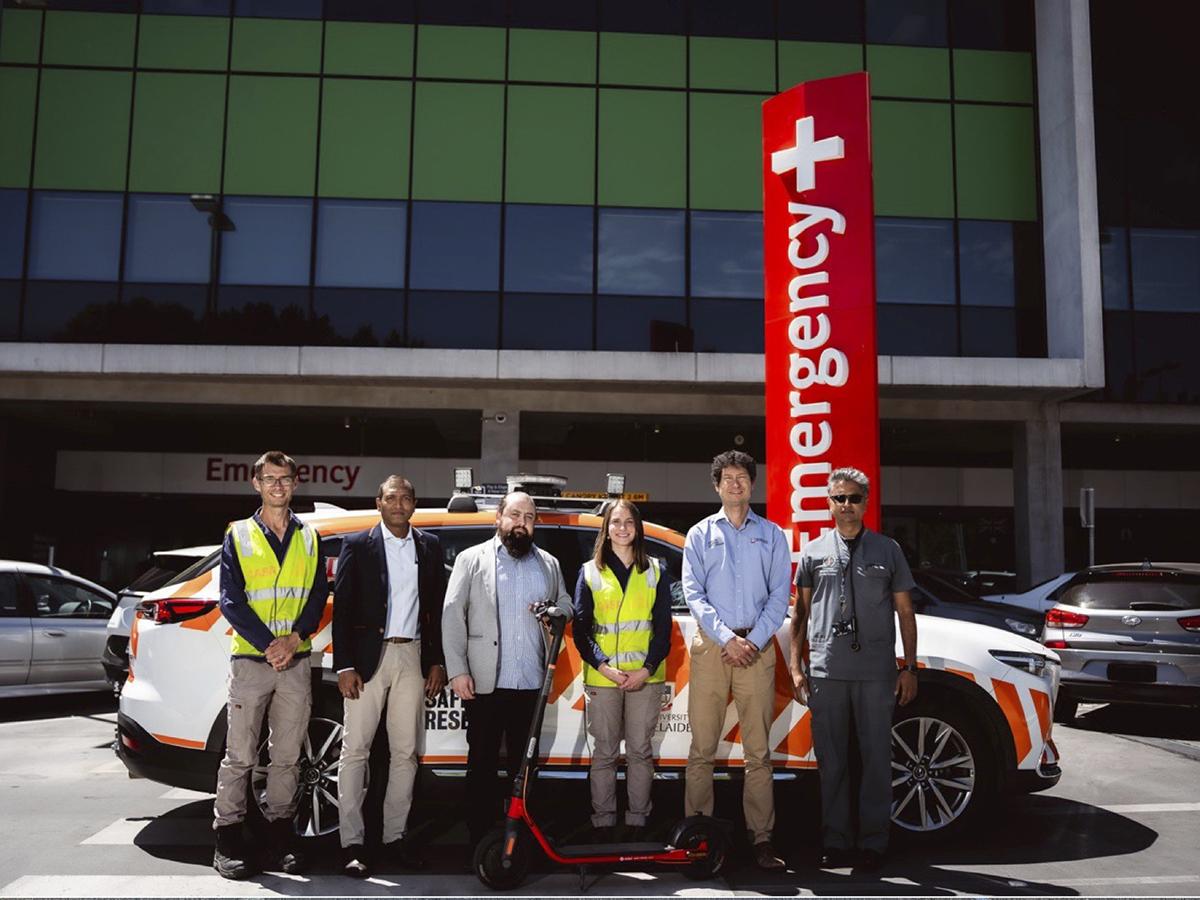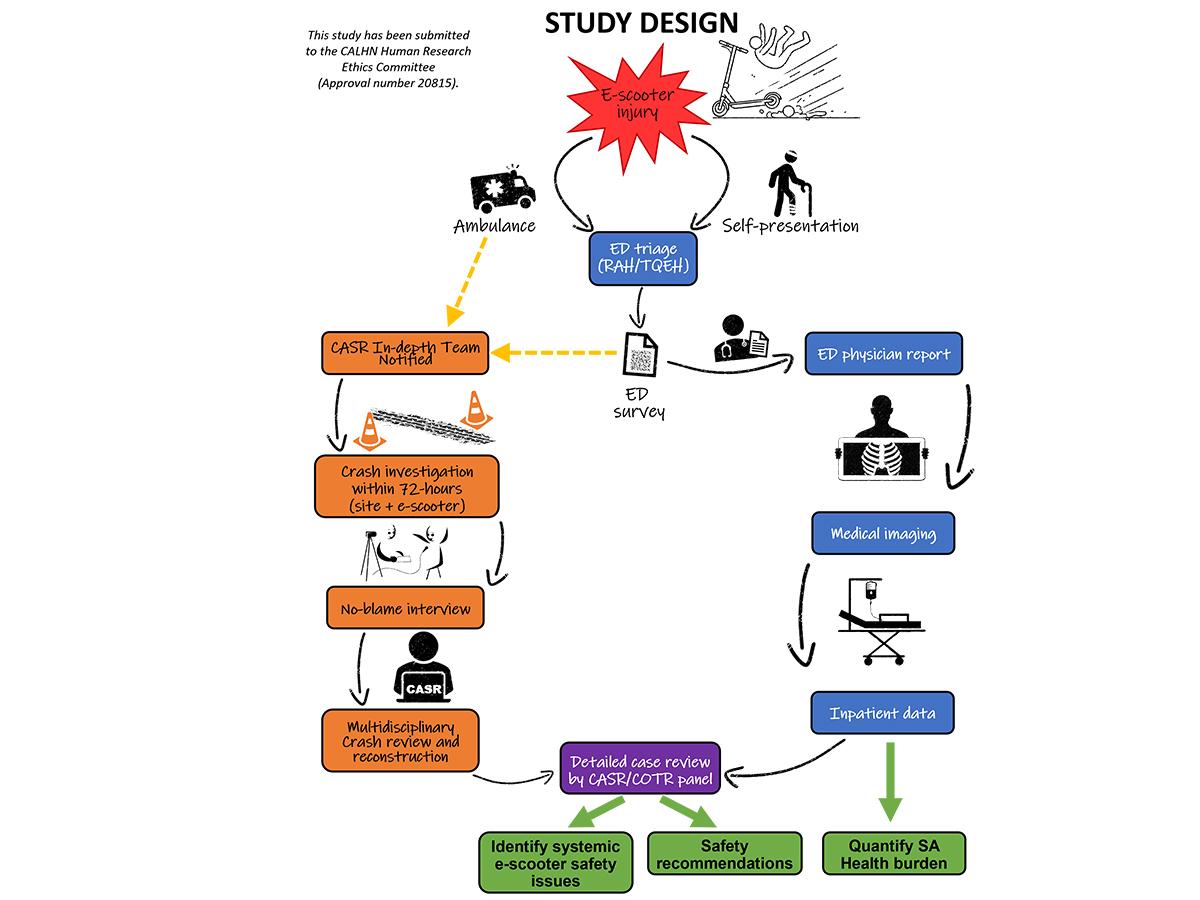E-scooter crash investigation study in South Australia
Researchers from SA Health and The University of Adelaide have been awarded grant funding from the Lifetime Support Authority to conduct research into e-scooter injury and crash mechanisms commencing in 2025.
Why study e-scooter crashes?
- The adoption of e-scooters has increased dramatically in cities globally providing convenient mobility options for people and alignment with sustainable transport objectives
- Where laws allow, e-Scooters can usually be used via a commercial hire scheme arrangement or as a privately owned device
- As with all transport modes, there are negative consequences relating to risk and injury that need to be monitored and understood
- There is a worldwide trend of increasing hospital presentations as a result of e-scooter use
- In Australia, hire scooters have usually been restricted to footpaths in specific geographic zones, are speed-limited and also require mandatory helmet-use by a single-rider with a BAC<0.05
- In the Adelaide CBD there were 808,000 hire trips recorded between December 2019 and October 2022
- Adelaide hospital emergency departments (CALHN) have observed increases in presentations of injured riders and other road users as a result of e-scooter collisions
- With increased exposure, injury numbers are expected to increase upon legalisation for the use of privately-owned devices in July 2025, see link below to Government of South Australia my licence website
- This study will provide a rare opportunity to monitor injury patterns as private use of e-scooters is legalised and increases over time

Example of e-scooters
Data is needed for evidence-based interventions
- Other cities have found e-scooter related hospital admissions exhibit higher instances of traumatic brain injuries than those from bicycles and motorbikes
- Contributes substantial economic burden to hospital and local health systems
- Detailed crash investigation is required to understand injury factors, severity, role of infrastructure and scooter design to inform policy and harm prevention strategies.
This study is a research collaboration between
- Crash investigators and road safety researchers from Centre for Automotive Safety Research (CASR) at The University of Adelaide
- Biomechanics Injury researchers from the Centre for Orthopaedic and Trauma Research (COTR) at the University of Adelaide Medical School
- and Emergency Department Clinicians from the Royal Adelaide Hospital (RAH), The Queen Elizabeth Hospital (TQEH), SA Health

This study is funded by a Lifetime Support Authority Research Grant (R24028) and submitted to the CALHN Human Research Ethics Committee (Approval number 20815).
Please direct any questions to thiru.govindan@sa.gov.au or ryan.quarrington@adelaide.edu.au.

To download this information please click link below
